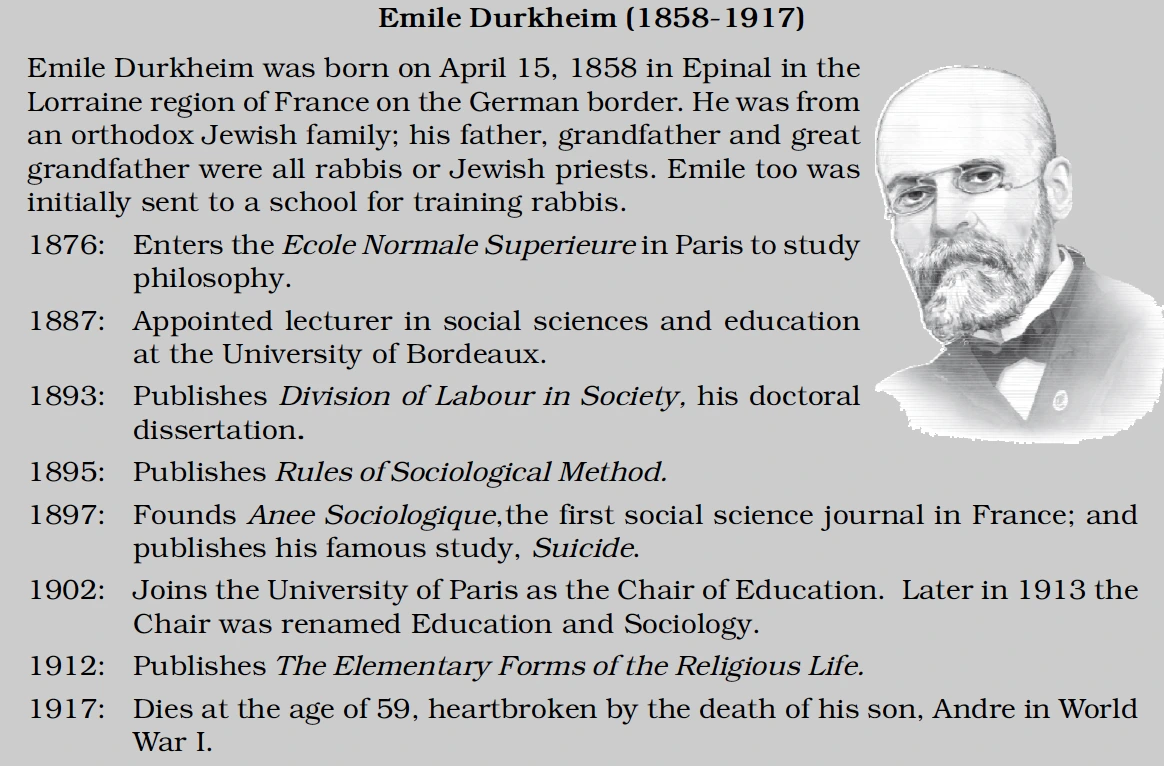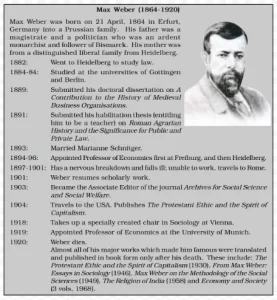Emile Durkheim may be considered as the founder of sociology as a formal discipline as he was the first to become a Professor of Sociology in Paris in 1913. Born into an orthodox Jewish family, Durkheim was sent to a rabbinical school (a Jewish religious school) for his early education. By the time he entered the Ecole Normale Superieure in 1876, he had broken his religious orientation and declared himself an agnostic. However, his moral upbringing had an enduring influence on his sociological thinking. This historical context forms part of the sociological foundation laid by Durkheim, shaping his approach to the discipline.


<div class="new-fform">
</div>